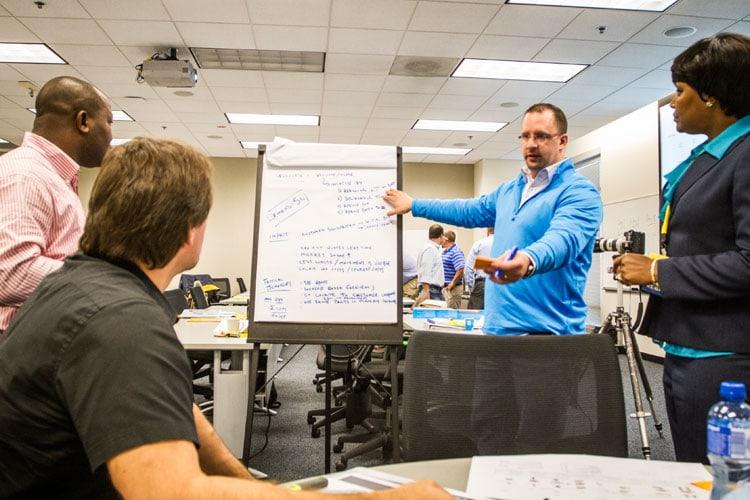
Why is it different?

Why go for CLTDm® Certification?
CLTDM® certification helps professionals acquire basic knowledge and skills in Logistics, Transportation, and Distribution
The CLTDm® certification exam assumes that you have a close working relationship With the Logistics, Transportation and Distribution, or Supply Chain Industry
Today’s companies are shipping and delivering perishables and manufactured goods faster and farther around the world than ever before through transportation and distribution solutions. New technologies that provide information during local and global shipments via air, ground and sea are transforming the way companies do business – and allowing them to stay ahead of the competition in their industries. As these services continue to evolve, businesses are discovering new ways to increase efficiency and cut costs. Learn how companies are using transportation and distribution solutions to power their supply chains.
Transportation, distribution, and logistics are all important parts of supply chain management. Transportation ensures that deliveries arrive on time and without issue. Distribution is the overall inventory, warehousing, supply chain, and logistics. Logistics focuses on the internal movement of goods between different points in the supply chain.
Here are some ways that transportation, distribution, and logistics overlap:
- Supply chain management handles activities between separate entities.
- Logistics moves and stores goods between different points in the supply chain.
- Distribution occurs between every pair of stages in the supply chain.
About the exam
Maintaining well-organized logistics and supply chain management is essential to keeping a competitive advantage in many industries. Supply chain management professionals serve vital roles in companies across the economy. And those who work in this field find ensuring the effectiveness of their global supply chain to be a challenging and satisfying profession.
Supply chain managers need to be knowledgeable about inventory control, operations management, third-party logistics, raw materials, transportation, and many other topics. The best logistics and supply chain management degrees will teach all of this and more to train versatile and dedicated supply chain management professionals.
If you want to advance your career in logistics and supply chain management, start by learning the basics of the process, as well as the benefits and challenges of managing transportation and logistics in supply chains.

- Topics covered in this certification include
- Supply chain and manufacturing strategy
- Supply chain operating model design
- Complexity management/cost to serve
- Supply chain segmentation
- Make vs. buy analytics.
- Environmental, social, and governance (ESG)strategy
- Information technology and business processes
- Global logistics and risk management
- Coordinated product and supply chain design
What Skills Will You Learn?

FINANCIAL MANAGEMENT

INVENTORY MANAGEMENT

STRATEGIC PLANNING

TRANSPORTATION MANAGEMENT

RISK MANAGEMENT

Who would benefit from CLTDm® Certification?
- Logistics analysts
- Fleet managers
- Inventory managers
- Transportation managers
- Supply chain managers
- Demand planners


Why would you benefit from CLTDM® Certification?
Exam Codes | Exam CLTDM® AC-US10 |
Launch Date | August 2022 |
Exam Details | The new CLTDM® Fundamentals exam focuses on the knowledge and skills required to identify and explain the basics of computing |
Number of Questions | Maximum of 100 questions per exam |
Type of Questions | Multiple choice |
Length of Test | 120 Minutes |
Passing Score | 600 (on a scale of 1000) |
Recommended Experience | No prior experience necessary |
Languages | English |
Retirement | None |
Testing Provider | Affiliate Partner Testing CentersOnline Testing |
Price | $399.99 USD |




